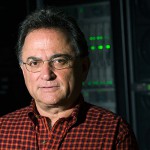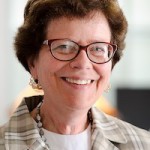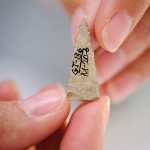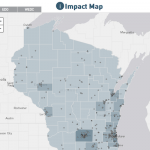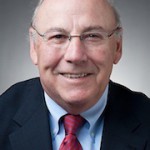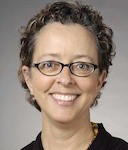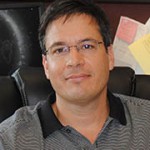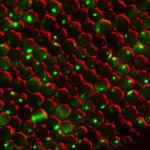Category Employee News
Miron Livny: Collaborative spirit supports Nobel Prize-winning science
In 1964, François Englert and Peter Higgs theorized the existence of a subatomic particle that gives all other particles mass. Nearly 50 years later in 2012, a global team of researchers found evidence that supports the existence of the Higgs boson particle at the Large Hadron Collider (LHC) in Geneva, Switzerland.
UW-Madison Statement in Response to Bill Maher Robocalls
It is no surprise that People for the Ethical Treatment of Animals (PETA) continues its opposition to biomedical science through their sustained efforts to draw attention to research to which they object. PETA has tried mightily to stop important work on hearing at UW–Madison by making repeated, unsubstantiated and false claims about the work and its conduct.
Physics Nobel awarded for Higgs particle; UW played key role in research
UW–Madison teams led by physicists Sau Lan Wu and Wesley Smith have played crucial roles in the development and operation of the two main experiments at the Large Hadron Collider (LHC) that discovered the Higgs boson in July 2012.
UW repository stores anthropological artifacts from around the world
Like Hercules assigned to clean the Augean stables, curator Danielle Benden was hired by the University of Wisconsin–Madison anthropology department in 2007 to sort and systematize the final resting place for the department's collection of pots, bones, baskets, spear points, clothing, musical instruments, kayaks and effigies.
Study to compare Wisconsin and Illinois legal access for poor
Does a parent who faces jail time for falling behind on child support payments have the right to a court-appointed attorney?
Fall forum will discuss state of diversity issues
With a new chancellor, new campus diversity leaders and a new framework for inclusivity and diversity on campus in the works, the 2013 Fall Diversity Forum will offer a lot to discuss.
Tradition takes to the streets for UW Homecoming 2013
It's time for a storied tradition to come alive on campus. Thousands of alumni will return for the annual commemoration of Homecoming at the University of Wisconsin–Madison, set for Oct. 6-13, featuring a week-long celebration of UW graduates, future alumni, and all things Badger.
UW-Madison team probes home health environments with virtual reality
In health care environments, nurses and doctors can closely monitor patients' medical regimen and schedules. But when a patient leaves the clinic or hospital to go home, the responsibility for care transitions to families and patients. The result: Regimens might not be adhered to as closely.
Wisconsin residents well-represented in freshman class
The incoming freshman class at the University of Wisconsin–Madison represents more Wisconsin residents than in the past 12 years.
‘Video Games and Learning’ pilot MOOC launches
Kurt Squire has enrolled in about a dozen Massive Open Online Courses (MOOCs). “The experience was fun — to essentially be back in college again, but to feel like I’m doing so driven by my own interest without the pressures of grades and so on,” Squire says.
Annual Security and Fire Safety Report available for download
Dean of Students Lori Berquam sent the following message to campus on Oct. 1, 2013: Members of the UW–Madison Community: In the past few weeks,…
UW scientist sniffs out possible new tick species
In June 2012, Tony Goldberg returned from one of his frequent trips to Kibale National Park, an almost 500-square-mile forest in western Uganda where he studies how infectious diseases spread and evolve in the wild. But he didn’t return alone.
UW–Madison researchers put NIH grant review process under microscope
The National Institutes of Health’s system for selecting research projects may be considered the gold standard for equitably awarding funding, but that hasn’t kept the agency from dispatching three University of Wisconsin–Madison professors to probe the system for bias.
Zinc discovery may shed light on Parkinson’s, Alzheimer’s
Scientists at the University of Wisconsin–Madison have made a discovery that, if replicated in humans, suggests a shortage of zinc may contribute to diseases like Alzheimer's and Parkinson's, which have been linked to defective proteins clumping together in the brain.

